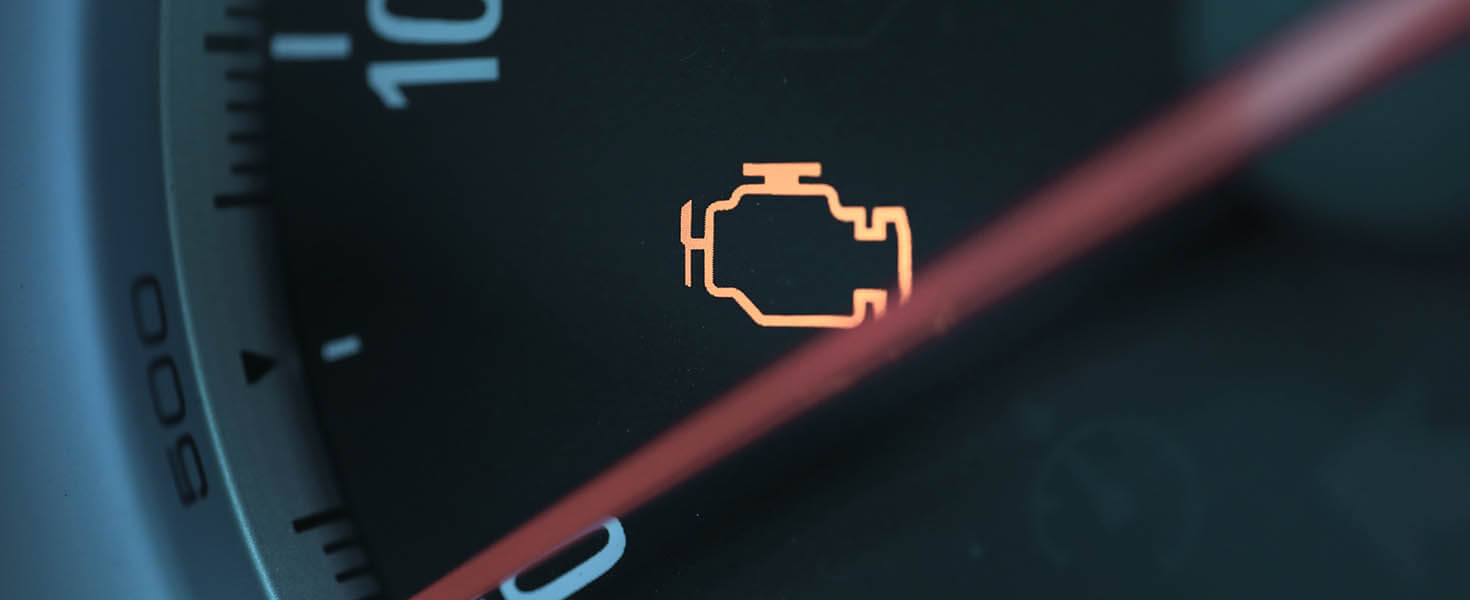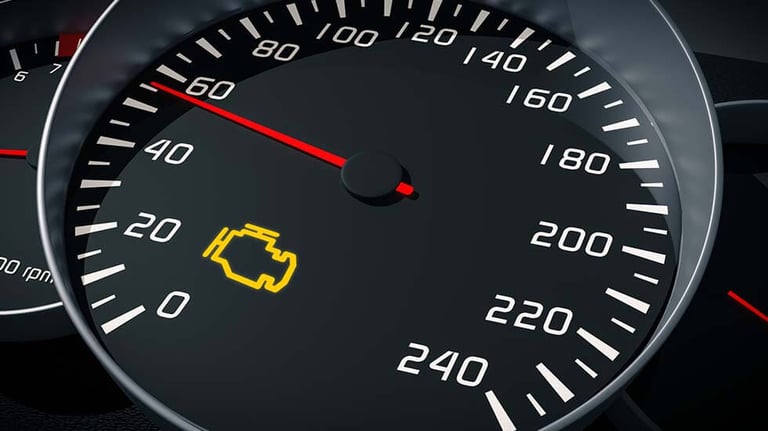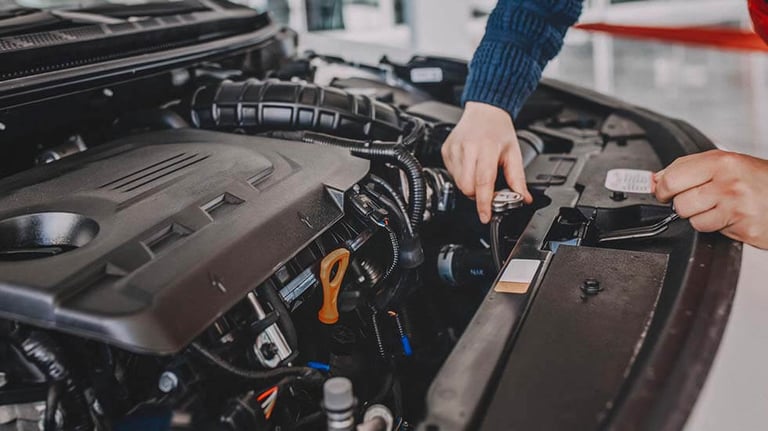Top 5 Reasons Check Engine Lights Come On
Indications you need to prepare for a new battery or a jump start

The check engine light always seems to flash at the worst possible time. Either you just got your car out of the shop or you were just telling a friend that your car is super-reliable.
Regardless, the check engine light is not something you want to ignore. Sometimes, you get lucky and it’s an easy fix. Other times, it signals that a serious repair is needed.
Keep reading to find out the most common reasons for check engine lights coming on in cars, according to the2017 CarMD Vehicle Health Index. If you’re reading this, chances are it has happened to you (maybe even today!). But don’t worry. By the time you’re done, you’ll have more than a handful of possibilities to check or have your mechanic check. You’ll be well on your way to fixing your car!
Oxygen sensorts
Average repair cost: $258.63
Of all the cars currently on the road, model year 2005 vehicles are the most likely to have check engine lights come on, according to the CarMD study. The median age of cars in need of check engine light repairs is 11.9 years old. And not to scare you, but these repairs can get pricey. According to the study, the average repair related to a check engine light is $397.87.
Of the top 25 reasons for check engine lights coming on, faulty oxygen sensors are at the very top of the list. In fact, they account for 8% of all check engine lights in cars.
Most cars have two to four oxygen sensors. They measure the amount of unburned oxygen in the vehicle’s exhaust system. If one fails, the vehicle could burn more fuel than is needed. This will result in a decrease in fuel economy of up to 40%, according to the U.S. Department of Energy, and that means more money out of your pocket.
This repair could cost you over $250, but if you don’t address the issue, it could bust your catalytic converter, a much more expensive repair that we’ll cover next.

Catalytic converters
Average repair cost: $1,190.18
The catalytic converter turns carbon monoxide found in exhaust gases into less harmful emissions. Without it, your car won’t go, and if it does, it will get horrible gas mileage. The good news is this part should not fail if you’re keeping up with your car maintenance. The main reasons for it failing are faulty oxygen sensors and bad spark plugs, which your mechanic should be checking when your car goes into the shop. This is one of the reasons AAA stresses preventative maintenance and creating a rainy day fund for car repairs to its Members. A recent AAA study found that1 in 3 Americanswould not be able to afford a car repair without going into debt.
Ignition coils and spark plugs
Average repair cost: $401.22
These parts help start a car. The spark plugs ignite the mixture of air and gas found in the combustion chamber and spark plug wires deliver the spark needed to do this from the ignition coil to the spark plugs. All very cool stuff, and all parts that degrade and could fail in a car over time. In vehicles built this century, spark plugs can last up to 100,000 miles, but they don’t always.A good mechanicwill inspect them routinely. Having bits and pieces of this system replaced should cost you less than $400. But ignore spark plugs long enough and you could damage or ruin the catalytic converter. Other symptoms of failing spark plugs or ignition coils include reduced engine power and fuel economy.

Loose or damage gas cap
Average repair cost: $16.88
As the price tag indicates, if this applies to you, thank your lucky stars. Among the top reasons for check engine lights coming on, this is as good and cheap an outcome as any (other than the light turning off, which you should probably still get checked out to be safe!). Basically, if the gas cap is broken or loose, the vehicle’s fuel system gets thrown out of whack. The difference between this and the other reasons for check engine lights coming on is that you probably won’t feel or notice anything different about how the car drives. If you suspect this is the case, pull over, tighten the cap and look for cracks. Rather than bring it to the shop, this is a repair you can do yourself. A new gas cap at the auto parts store should cost you less than $5.
Mass airflow sensor
Average repair cost: $378.15
This sensor works with the vehicle’s computer to get the right mix of air and fuel in the combustion chamber. If it fails, so can your car. Rough idles and stalls are all but assured when this happens. But, like some of the other problems on this list, this reason for check engine lights can also damage other parts and lead to a mega-repair with a big price tag. A failed mass airflow sensor can damage spark plugs, the catalytic converter, and oxygen sensors. It will also decrease your fuel economy. The labor is a bit easier for this one compared to some of the others on the list, but bring it to a professional if you’re unsure about messing with your car.
The check engine light is one of the biggest nuisances for drivers. Stay up on your car maintenance and you should be able to avoid most of the headaches on this list.
